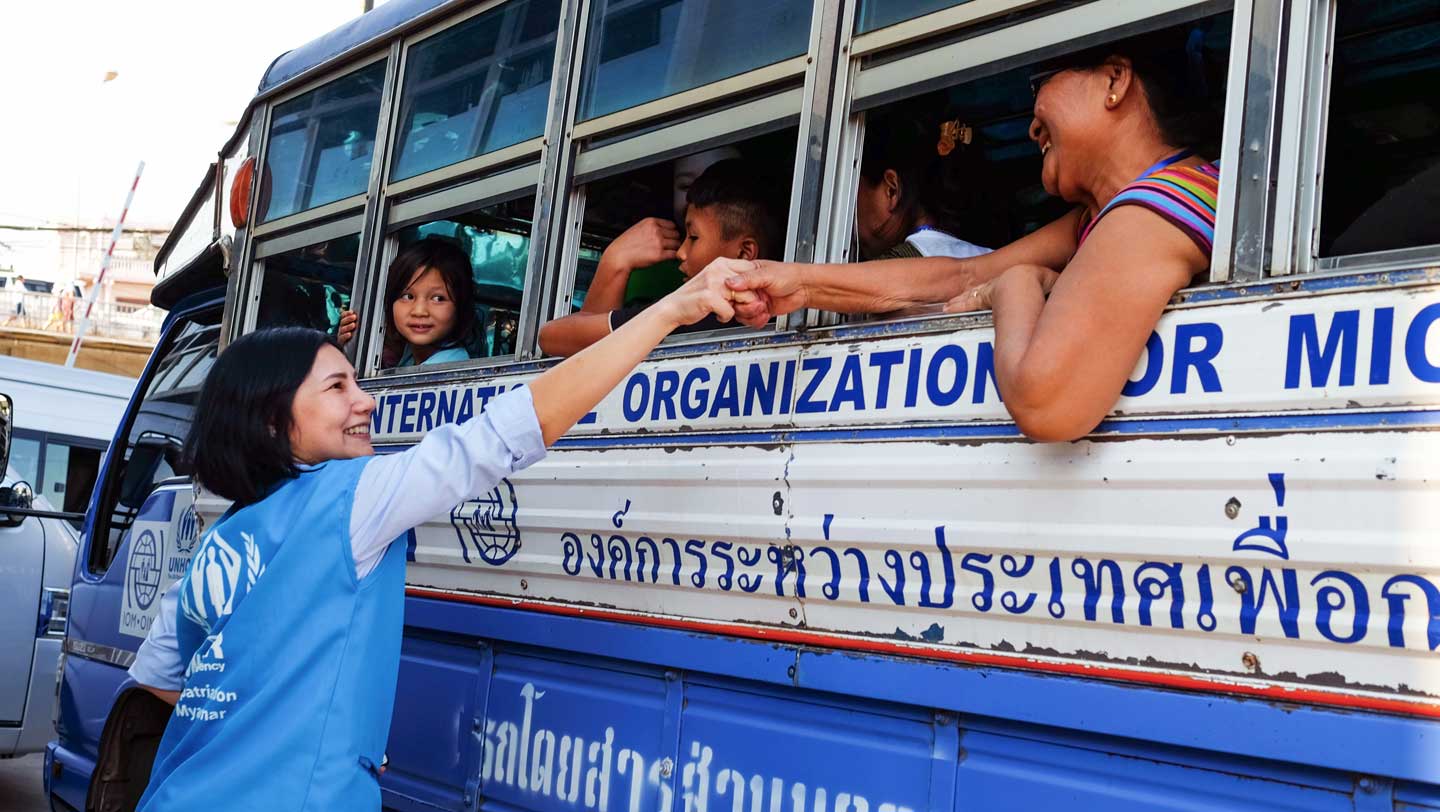Supporting refugees and internally displaced people to return home.
For the millions of people forced to flee, returning home concludes an often traumatic time in exile. It may happen months, years, or even decades after they left.
When it is safe to do so, UNHCR, the UN Refugee Agency, facilitates refugees and other forcibly displaced people to return home. We coordinate large-scale and individual repatriations and work to ensure any returns are voluntary, safe and dignified.
However, our work doesn’t end there. Even after refugees have crossed the border back into their home country, or internally displaced people return to their areas of origin, we continue to monitor their treatment. Working with national authorities and development partners, we help them reintegrate into their communities and make sure they can access the same services as their fellow citizens, such as housing, employment opportunities, schools and health care.
By making sure former refugees and internally displaced people are safe and can access their rights, we help ensure returns are sustainable and people are not forced to flee again.
Refugees and internally displaced people can only return home in safety once the root causes for their displacement have been addressed and lasting peace is achieved. In 2023, nearly 1.1 million refugees were able to voluntarily return to their country. A further 5.1 million internally displaced people (people who are displaced within the borders of their own country) returned to their place of origin.
UNHCR plays a leading role, collaborating with States and other partners, to promote, facilitate, and coordinate voluntary repatriation in safety and dignity. We do this through:
- Supporting the retaining and expansion of skills, resources and assets during displacement that will support refugees upon their return;
- Ensuring the exercise of a free and informed choice including by compiling and sharing updated information on their country and region of origin with refugees, organising “go-and-see” visits, and providing counselling;
- Supporting return transportation;
- Monitoring the situation of returnees upon their return;
- Facilitating the participation of returnees in peace and reconciliation activities; Supporting interventions such as access to justice and house, land and property restitution in return areas;
- Collaborating on livelihoods interventions in return areas;
- Promoting the inclusion of returnees in national development planning in countries of return.

